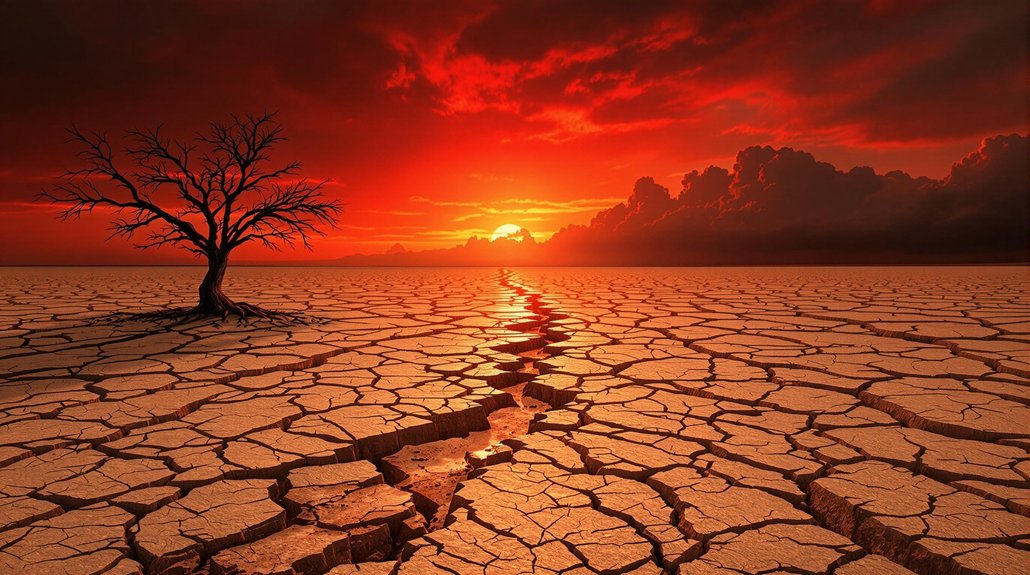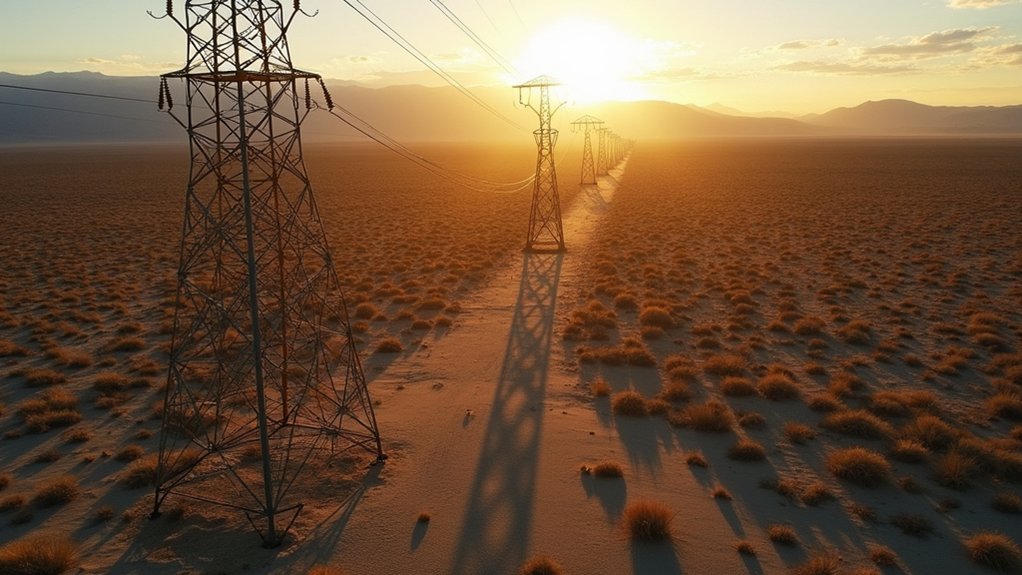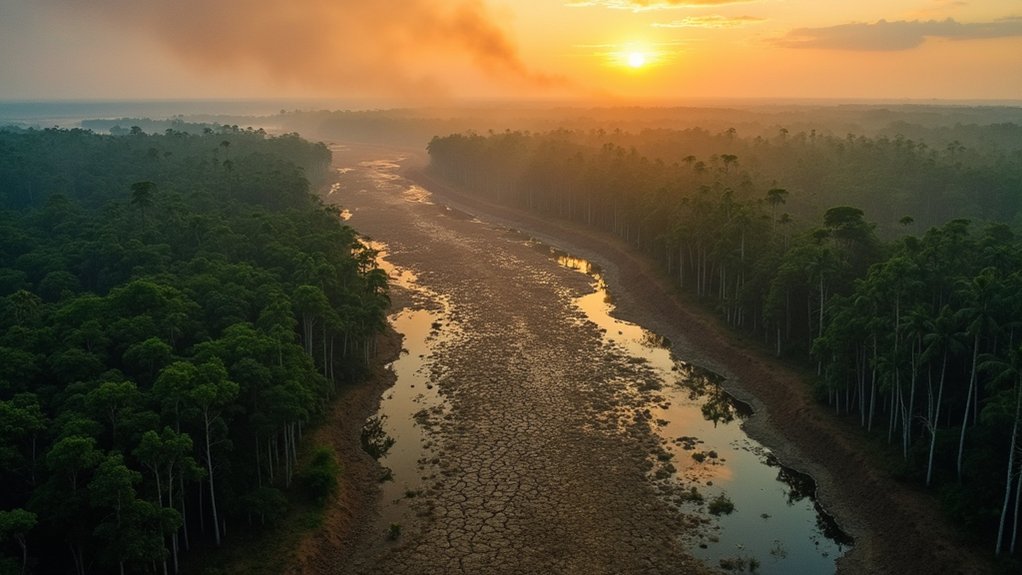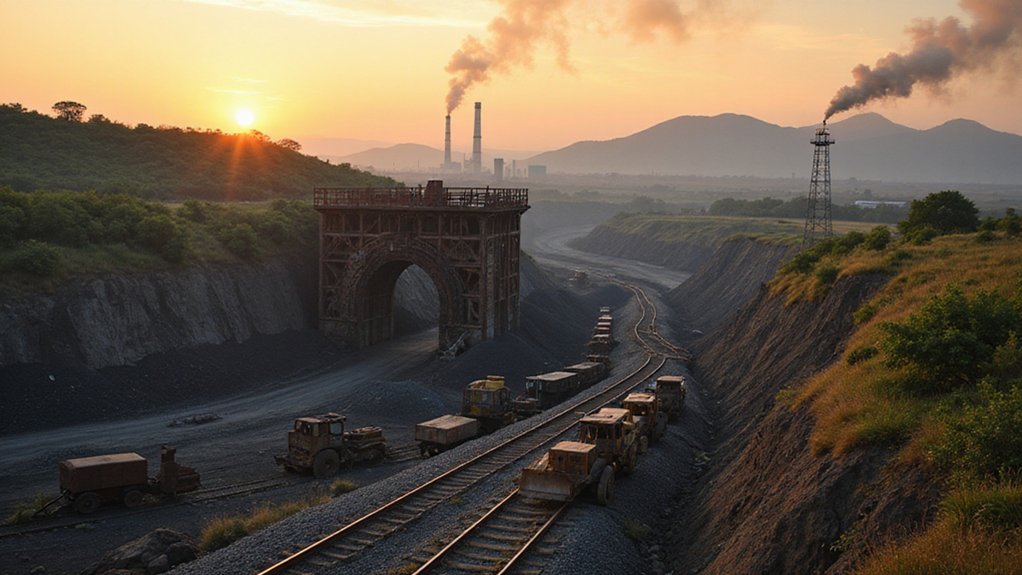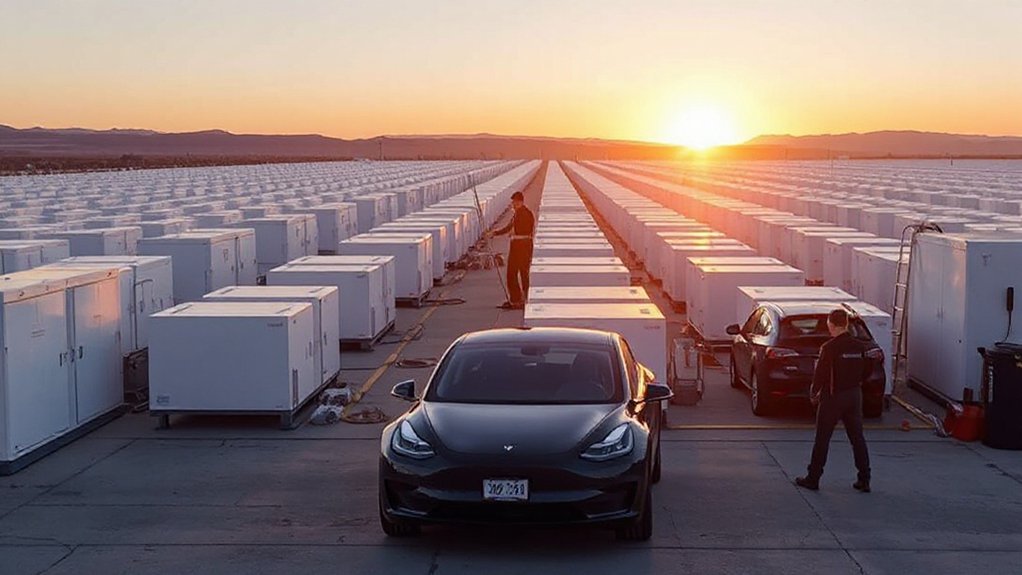Earth’s greenhouse effect has become a dangerous trap. Once life-supporting, it’s now suffocating our planet. Global temperatures have climbed 1.1°C since the 1800s, with 19 of 20 hottest years occurring after 2001. Yikes. Over 11,000 scientists are screaming “emergency!” The culprits? Fossil fuels, deforestation, and industrial processes. The UN’s verdict: we’ve got eleven years to slash emissions by 7.6% annually. The clock ticks louder each day.
While scientists have been warning us for decades, the climate crisis has finally arrived on our doorstep, uninvited and unwelcome. It’s not just warming temperatures anymore—it’s a full-blown emergency. Over 11,000 scientists didn’t just casually mention we might have a problem; they declared a climate emergency in 2019. A staggering 100% consensus exists among climate experts regarding human-caused global warming. They weren’t being dramatic for fun. The evidence is everywhere.
Remember when 400 parts per million of CO2 was the scary threshold we weren’t supposed to cross? Yeah, we blew past that. Since the late 19th century, global temperatures have risen about 1.1°C. Not impressed? Consider this: 19 of the 20 warmest years on record have happened since 2001. That’s not a coincidence.
The greenhouse effect used to be our friend. It’s what makes Earth habitable instead of a frozen rock. But we’ve taken a good thing and pushed it to absurdity. We’re like teenagers throwing gas on a campfire for kicks. Except the campfire is our entire planet. The intensity of this greenhouse effect has increased 43% since 1990 alone, trapping more heat than our planet can safely handle.
What was once our protective blanket has become a suffocating shroud—we’ve supercharged Earth’s thermostat beyond recognition.
The culprits? No mystery there. Fossil fuels, deforestation, agriculture gone wild, and industrial processes that pump out greenhouse gases like they’re going out of style. Spoiler alert: they should be.
The consequences aren’t theoretical anymore. Sea levels have risen about 20 cm in the last century. Oceans are 0.33°C warmer since the 1970s. Extreme weather is becoming the new normal. Polar ice? Melting. Marine ecosystems? Acidifying. Our food and water security? At risk.
The Paris Agreement aimed to limit warming to 1.5°C. Great goal. Too bad most countries aren’t on track to meet their pledges. The Shockwave Rider warned us about climate change and increased weather volatility decades ago, yet we’ve largely ignored these prescient warnings. The UN says we have about 11 years left to avoid catastrophe. We need to cut emissions by 7.6% annually until 2030.
Time’s running out. Every fraction of additional warming makes things worse. That’s the deadly paradox—the hotter it gets, the harder it becomes to escape the heat.
